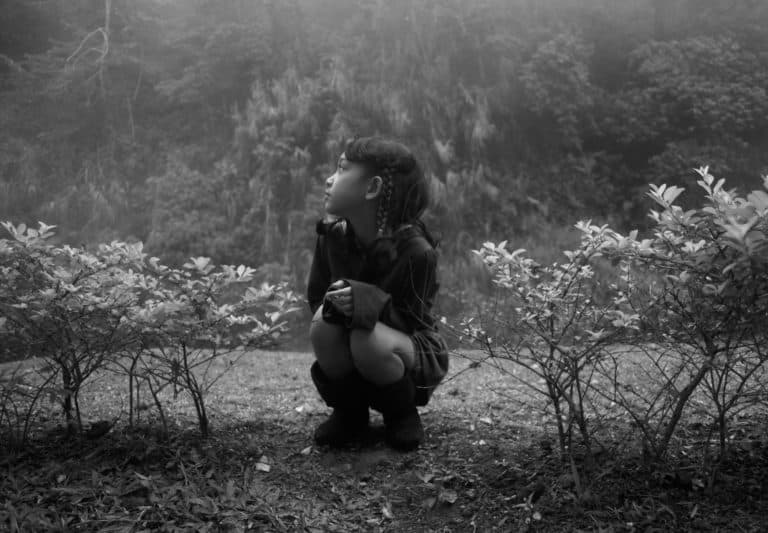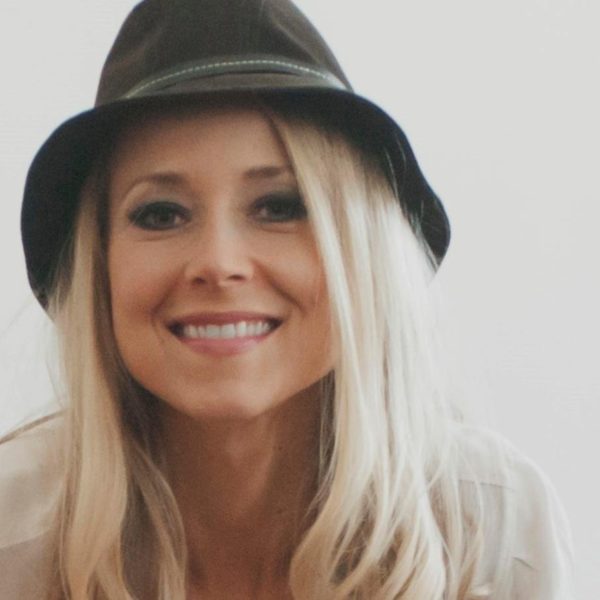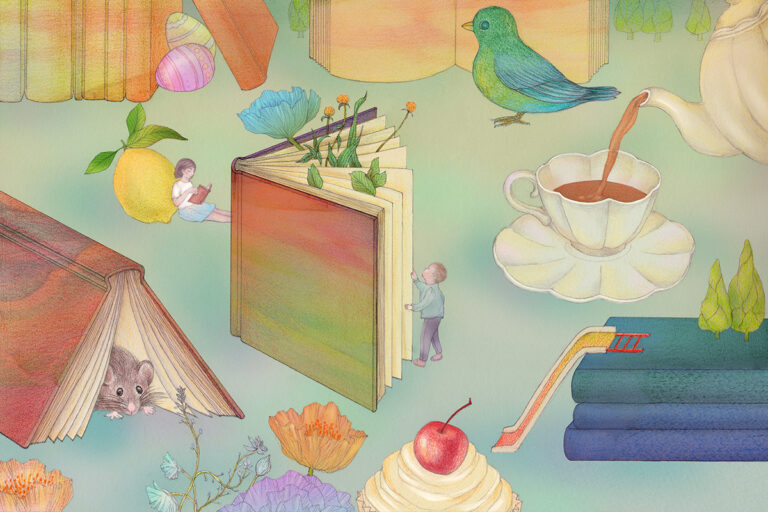
Image by idreamlikecrazy/Flickr, Attribution.
Fighting To Be Heard: The Deeper Need to Read and Encounter
My mother, Jeannie, didn’t read to me when I was a kid. Nobody did, really. A stoic Midwestern lot in the business of manual labor, we weren’t a read-to-the-kids sort of family.
She did read books to herself. She gave me books, too. For most of my childhood we lived in the country, far from libraries, but on each Scholastic book-order form sent home from school I got to check a few boxes. I had just enough books to treasure and sometimes read them more than once out of necessity. I read them alone in silence, but I still somehow heard them — their words in my head like the voices of spirits.
When I wore out my own book stash, I’d paw through my mom’s bookshelf, a streak of red, shiny letters on glossy spines: STEPHEN KING. ANNE RICE. MARGARET ATWOOD. Aside from a couple volumes of Robert Frost poetry, the books she loved always seemed to have titles and author’s names the color of blood. There was blood on the inside too. As a farm kid who saw blood every day, I didn’t mind one bit. Without telling her, I’d slink off with the big, heavy novels at an age before I’d let a child of my own do so, I guess. She didn’t stop me, and it was glorious.
When Jeannie was in her late twenties (I was about ten), she managed to take a couple night classes on creative writing at Wichita State University with the help of federal education grants. She hadn’t been in a classroom since she was 16 in a rural high school. She didn’t talk about the writing courses to anyone, really. In recent years, though, not long before her death, I found the story assignments she had written and saved. The margins were full of exclamation points, a professor’s handwritten comments singing about her raw talent.
Like my mother, I never decided to “become a writer” but rather processed the world through sentences and narratives from my earliest memory. She was quietly proud of this sensibility we shared, though her means of encouraging it were limited. Most of the people where we were from didn’t read books, let alone venture to write them.
That wasn’t all bad. Ignorance perhaps behooved my early path toward writing as a career. Author Alice Munro, raised on a mink farm in rural Ontario during the 1930s and ’40s, told The Paris Review in 1994:
“I think in a way that my confidence came just from being dumb. Because I lived so out of any mainstream, I didn’t realize that women didn’t become writers as readily as men, and that neither did people from a lower class.”
Nonetheless, in finding the gumption to turn a private passion into a public profession, there is much to be said for beholding a living, breathing professional. Not knowing any authors, my amorphous sense of books having otherworldly origins persisted into my adolescence. Books hadn’t even been grounded in my parents’ reading voices, instead always existing in the same private channel through which I prayed to God.
I recently found an improbable 35-millimeter photograph of my mom and me — two working-class bookworms from a family of non-readers — getting a book signed by Anne Rice at a Hastings Entertainment retail store in Hutchinson, Kansas.

It was 20 years ago; I was 15. I knew my way around a tractor sale or a cattle auction but was new to the concept of a book-signing. It was the first and only literary event I’d attend until college; I wouldn’t go to a proper “reading” for the first time until I was in graduate school in New York working on early drafts of my own book.
What on earth was a writer whose blockbuster novel Interview with the Vampire had recently been made into an Oscar-winning movie doing in a prairie town of 39,000 people? I don’t know, but I remember the scene well. When we got to the front of the long line, I was speechless — not for being star-struck but because, when we reached the front of the long line, we saw that Anne Rice was wearing a red and blue button that read “CLINTON GORE ’96.” (Now, I’m amused to note that an iconic author of gothic horror was wearing the word “gore.” It’s why as a writer I favor nonfiction — too good to make up, its poetry inherent.)
I was flummoxed to see that she was a human being with political opinions — ones that didn’t align with mine, to boot. A product of my place that election year, I was rooting for Kansas-born Republican candidate Bob Dole. She was also wearing a 1920s-style headdress. Gold beads and crystals dripped down her black hair like she was the high priestess of fiction. I liked this. My glamorous, witchy mom also had a habit of dressing like she was from another era.
Overwhelmed by the complexities of the moment — the creative admiration, the political chasm, the striking physical presence of a heretofore disembodied force — I didn’t say a word while Anne Rice signed Jeannie’s book.
Even more unlikely than that evening in a Kansas bookstore: it wasn’t the first time we’d seen Anne Rice. The previous summer we took a road trip to New Orleans and, while traipsing about the lush, stately Garden District, saw a woman with a shiny black bob walk out onto the sidewalk with her husband. I knew from The Witching Hour — a novel set in a historic house then owned by the author — that she lived there, and I recognized her from her book jacket photos. It was the first time I’d ever seen an author in the flesh. Perhaps wary of would-be autograph-seekers, Rice glanced across the street at us.
Mom shrugged between cigarette puffs on the sidewalk. She’d lived the sort of wild, hard-luck life that renders celebrity unimpressive. We didn’t bug the woman, but we were both secretly excited. Back home, Mom had a typed letter from Stephen King thanking her for a bit of fan mail she’d sent as a teenager living in a Wichita trailer court in the seventies, just before I came along. She cared about a handful of writers, not because they were famous but because they wrote books she cherished.
Once Rice went back inside, we crossed the street and walked past a small car in front of her house. I looked inside. The seats were stacked high with cardboard boxes. One of them was torn open to reveal freshly printed copies of Memnoch the Devil just prior to its publication date.
I understood then, on every level, that books weren’t handed down by literary deities. They were, as the names and photos on their jackets purported, written by human beings. Some company printed them and put them in boxes. For a time they sat in hot cars on streets, waiting to be peddled by the very person who wrote them. Creativity may well involve a mystical dimension, but the voice in Anne Rice’s books was the voice of a real woman.
Our familial origins propel us, of course, but so do other encounters: the teacher who took extra care, the neighbor who complimented a jump shot, the old woman who endowed a scholarship fund, the master who encouraged a novice as Alice Munro once encouraged Cheryl Strayed. The deeper the need, perhaps, the more crucial the meeting. Merely seeing an author standing in Louisiana sunlight filled me with hope. If we were alive on the same plane, embodied in the same sort of form, it stood to reason that one day the voice in a book might be mine.
Once emboldened toward publication, fighting to be heard is another battle entirely. It’s one my mother never caught the chance to wage, if that was her dream. She didn’t become a writer. She fed and clothed someone who did, though. Along the way, she didn’t read to me, but she modeled reading — and spoke the effortless rhythm of her own words. In recordings of her voice I’m startled to recognize the cadence of my own. If you read something I wrote, you’re hearing her too, alive in language.


Share your reflection